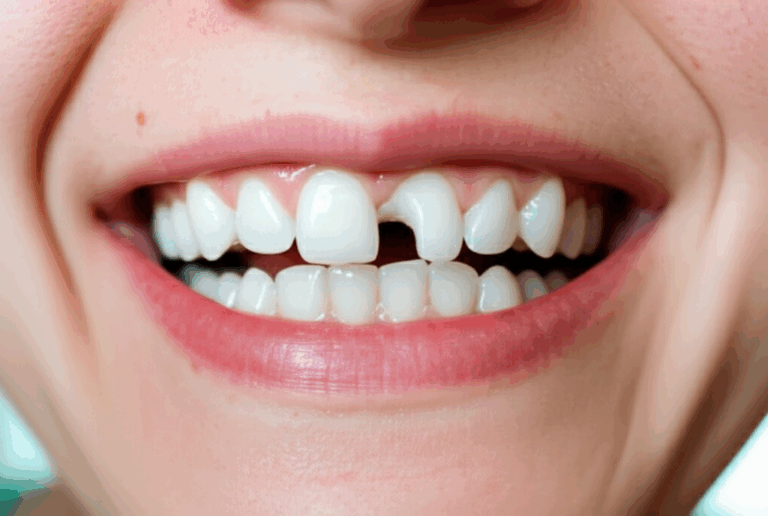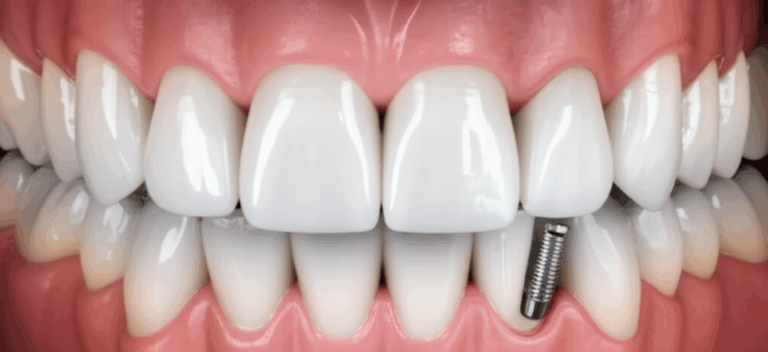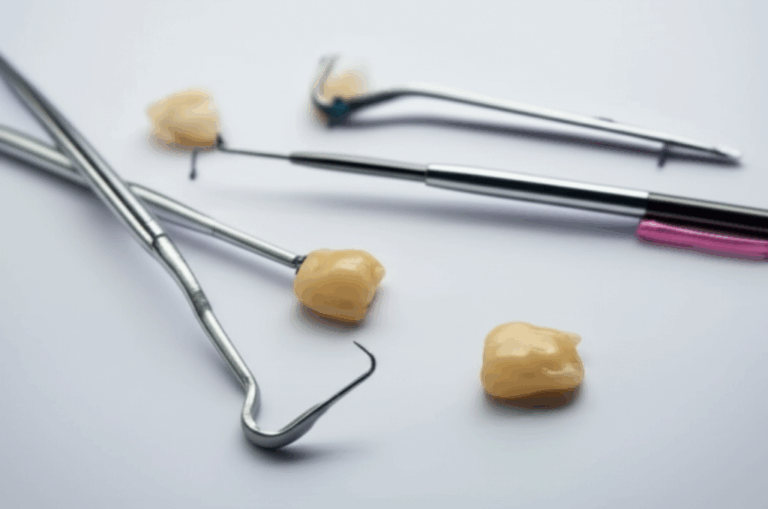
Do Dental Implants Hurt After Surgery? Understanding Post-Op Discomfort
Dental implants can change your life, but many people worry about pain after surgery. If you are thinking about getting dental implants or just had the procedure, you probably have one big question: “Is this going to hurt?” I get it. Surgery can be scary, especially when you’re not sure what to expect. In this article, I’ll walk you through what dental implant pain is really like, how long it lasts, and the steps you can take to manage it. You’ll find real answers, useful tips, and confidence as you prepare for (or heal from) your dental implant surgery.
Table of Contents
What Are Dental Implants and Why Get Them?
Let’s start from the top. Dental implants are small metal posts, usually made of titanium, which a dentist or oral surgeon puts into your jaw. After these posts connect to your jawbone from a process called osseointegration, a new tooth (or more teeth) can be put on. A dental implant looks and acts like a real tooth. It can last many years.
People want dental implants because they:
- Fill in spaces where teeth are missing
- Make chewing and talking easier
- Look just like real teeth
- Keep your jawbone strong
Dental implants can fix many dental problems. If you want something that looks real and lasts a long time, implants might be right for you. But you might be thinking, “Will it hurt to get one put in?”
Is Getting Dental Implants Painful?
To be honest: Most people feel some pain or soreness after dental implant surgery. The good news is, today’s dental care helps keep pain under control. Here’s the truth:
- During surgery, your dentist gives you numbing shots, so you don’t feel pain.
- Some dentists even give you medicine to help you relax if you’re nervous.
- After surgery, you could feel sore, swollen, or have a dull ache.
These feelings are normal and can be handled. If you do what your dentist says, pain shouldn’t be too bad.
Let’s look closer at what you’ll feel—so you can get ready and not worry too much.
What to Expect: Pain and Sensations In the First 48 Hours
When the numbing medicine wears off, you’ll feel more. Most people say the first two days are when it hurts the most.
Here’s what you might notice:
- Mild to medium pain around where you got the implant
- A throbbing or pressure feeling
- Swelling in your gums or cheek
- Bruising on the gums or even on your face
- A little bit of oozing or minor bleeding is normal
- Numbness close to the area for a few hours or even a bit longer
This is just your healing time. Your pain can be the hardest on the first day or two, then slowly gets better.
Here’s a quick table:
| Symptom | How Common? | How Long? |
|---|---|---|
| Throbbing pain | Very common | 1-3 days |
| Swelling | Very common | Worst at 2-3 days, gets better after a week |
| Bruising | Sometimes | Up to 10 days |
| Numbness | Normal for a few hours, rare if still there after a day |
Remember: if you take care of the area, your pain should not get worse after the first couple of days.
Managing Dental Implant Pain in the First Week
Now, let’s talk pain relief. Don’t try to tough it out—there’s no need.
What helps best?
- Regular pain medicines like ibuprofen or acetaminophen help almost everyone.
- Stronger painkillers are sometimes given if your surgery was big or if your pain is tough.
- Use a cold pack or bag of ice on your cheek (20 minutes on, 20 off) for swelling, especially at first.
- Keep your head up with pillows when you rest.
What about eating and cleaning?
- Stick to a soft, cool diet—maybe yogurt, pudding, mashed potatoes, or scrambled eggs.
- Chew away from where you got the implant.
- Stay away from hot or spicy foods for a few days.
- Mouth care: Gently rinse with warm salt water, but don’t swish hard. Don’t brush right on top of the implant until your dentist says it’s ok.
Rest is good for you. Stay home, take it easy, and let your body heal. For more advice on soft diets and aftercare, check out a china dental lab used by dentists from all over.
How Long Does Pain After Dental Implants Last?
This is what everyone wants to know.
What most people feel:
- Worst pain: The first 1-3 days after surgery
- Everyday soreness: Usually goes away in 5-7 days
- A little tenderness: Might last up to 2 weeks
After that, most of the pain is gone. If you had a bone graft or sinus lift, it can take a bit longer to feel 100%.
And later? When the implant is healing and your dentist puts on the new tooth, most people don’t have any pain—just a strong, new tooth.
Quick timeline:
| Time After Surgery | Most Common Feelings |
|---|---|
| 0-48 hours | Mild or medium pain, swelling |
| 3-7 days | Soreness, getting better each day |
| 7-14 days | Usually only light soreness |
| 1+ months | Healed, almost never hurts |
If your pain doesn’t get better or suddenly gets worse, call your dentist.
Normal Discomfort or Signs of a Problem?
This is when people get worried: is what I feel normal?
What’s normal:
- Mild to medium pain that goes away with time and medicine
- Swelling that starts to go down after a few days
- A little bit of bleeding, but it stops soon
- A bit of bruising by the sore spot
What’s not normal:
- Really bad or more pain after 3-5 days
- Pain that doesn’t go away with medicine
- Too much bleeding or bleeding that won’t stop
- Pus, bad smell, or bad taste in your mouth
- Fever or chills
- Numbness that doesn’t stop after a day or two
- The implant wiggles or feels loose
If you have any of these, call your dentist right away. Things like infection, nerve injury, or an implant that doesn’t heal are rare, but getting help early really matters.
What Factors Cause More or Less Dental Implant Pain?
Not everyone feels the same thing. Here’s why you might hurt more (or less) than a friend:
Things that make pain worse:
- More implants: More spots mean more soreness
- Bone graft or sinus lift: These extra steps mean you could feel sore longer
- Tough surgery: If you needed a tooth pulled or had a tricky surgery, you might swell a bit more
- How you feel pain: Everyone is different!
- Health habits: Smoking means you heal slower and might hurt more. Not keeping your mouth clean can lead to infection.
Things that help with pain:
- Picking a good oral surgeon or periodontist
- Following the aftercare instructions carefully
- Good sleep and food
If you go with a skilled team—maybe from a top implant dental laboratory—you’ll probably heal faster and hurt less.
Easing Your Recovery: Steps for Less Pain
So, how can you help yourself?
Before Surgery:
- Get an experienced dentist or oral surgeon
- Tell them about your health
- If you’re nervous, ask about ways to help you relax
After Surgery:
- Take medicine as told
- Use ice packs to help swelling
- Eat soft foods
- Keep your mouth clean (how your dentist says), but don’t rinse too soon
- Rest and don’t work out hard for the first couple of days
- Don’t smoke or drink alcohol—they make healing slower
Always follow your dentist’s instructions, and call if you’re worried about pain.
Can Dental Implants Hurt Long-Term?
Here’s some good news: for almost everyone, pain is gone after a couple of weeks. Long-term pain is not common, but it can happen.
Why might pain come back months later?
- Nerve problems: If nerves were bumped, you could feel tingling or numbness. This usually goes away.
- Infection: This is more likely if you do not keep your mouth clean.
- Implant failure: Very rare, but pain happens if the implant did not heal right.
- Sinus problems: Only happens if you get implants in your upper jaw.
If you have strange or ongoing pain months later, see your dentist.
Dental Implants: Are They Worth It?
Why go through this? Sure, you’ll be a bit sore for a few days. But getting a strong tooth that can last for years is usually worth a short time feeling sore.
Here’s what people say they love about implants:
- They feel natural—just like a real tooth
- You can eat all your favorite foods
- Implants keep your jaw and smile healthy
- If you take care of them, they can last your whole life
Most people say they’d do it again, even knowing about the soreness at first. The reward is worth the wait.
FAQs About Dental Implant Pain
Q: Is dental implant surgery more painful than tooth extraction?
A: Most people say it’s about the same, maybe even easier. New numbing shots and gentle care make it simple.
Q: How long does it take to recover from dental implant surgery?
A: Most people feel better in about a week. The implant itself keeps healing inside for months, but you shouldn’t feel pain after the first week or two.
Q: Can I go to work the next day?
A: Light activities are fine after a day or so. If your job needs lots of moving or lifting, wait until you ask your dentist.
Q: What foods should I avoid?
A: Stay away from tough, crunchy, spicy, or very hot foods for about a week. Stick with soft and easy stuff and don’t chew on your implant.
Q: What is the chance of infection or complications?
A: Very low—about 1-5%. If you keep your mouth clean and do what your dentist says, problems don’t happen much.
For more helpful tips about dental implants, you can check the detailed guide here.
Summary: What You Need to Remember
- Dental implants make you sore right after surgery, but the pain is not bad for most people.
- Most pain peaks over the first 1-3 days and is much better in a week or so.
- Taking the right medicines, using ice, resting, and eating soft foods all help.
- Very bad pain or weird issues can mean trouble—don’t just wait, call your dentist.
- Almost everyone will say the good things from implants are worth the touching up soreness at first.
- Always listen to your dentist’s advice for easy healing.
- Want the best? Choose a pro dental team, like a china dental lab, for top care and results.
Don’t let worry about pain keep you from smiling again! If you want to know more or need help, talk to a caring dentist today.








